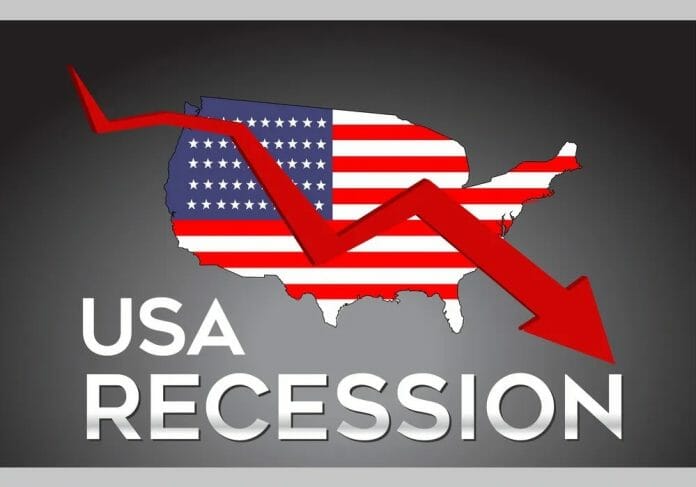Financial services company Fitch Ratings released a report on Tuesday (Oct 18) saying the US will likely enter a mild recession, much like the recession of the 1990s, next spring.
Fitch said while it expects a strong labour market to cushion the blow of a recession during the second quarter of 2023, ongoing interest rate hikes and soaring inflation will hurt consumer demand and eventually slow down job growth, according to United Press International (UPI) which cited the report.
Fitch predicts consumer spending to grow by 2.5% this year, before slowing to zero per cent in 2023.
“Fitch expects the US economy to enter genuine recession territory — albeit relatively mild by historical standards — in the second quarter of 2023. The projected recession is quite similar to that of 1990-1991, which followed similarly rapid US Federal Reserve tightening in 1989-1990. Nevertheless, downside risks stem from non financial debt-to-gross domestic product ratios, which are much higher now than in the 1990s,” Olu Sonola, the head of US regional economics for Fitch, said in a statement.
Fitch is not the first financial services company to forecast a recession next year.
UPI also reported that last week, JPMorgan Chase chief executive officer Jamie Dimon warned that soaring inflation, ongoing interest rate hikes and Russia’s war in Ukraine will take a toll and send the US into a recession in the next six to nine months.
The World Bank also predicted a global recession next year amid ongoing inflation and policy actions to control prices.
Fitch predicts next year’s recession to be on the mild side since consumer and household debt is lower than debt going into the recession of 2008. The report also noted that real estate wealth is higher this year, and should offset any losses in equity holdings.
But the report warned that ongoing interest rate hikes to tame soaring inflation will pose a risk to consumer spending in 2023, especially when combined with a “slowdown in job growth and rising unemployment”, according to Fitch.
While strong savings built up during the Covid-19 pandemic are expected to ease next year’s recession, the report warned that those reserves are already being tapped.
“Households built up large savings buffers through the height of the coronavirus pandemic, but they have been gradually drawing on these savings this year,” the report said.









